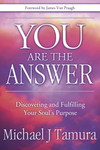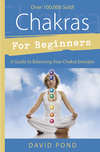Spirit of Music
 <?/div>
<?/div>A friend of mine recently posed an impossible hypothetical question. If you had to choose to live your life enjoying just one of the following—books, movies, or music—which would it be? I thought about it for about a quarter of a second and said books, like it was a foregone conclusion. Books have always been my main muse, shaping my education, life path, and career. But, in letting the question sit for a bit, I realized that I was wrong. My answer is music.
Movies entertain me. Books speak to me emotionally and intellectually. Music, however, has an absolutely pervasive quality that moves "me" completely, including all those parts of existence that can't be summed up in easy terms. Music shapes the deepest corners of our energetic, physical, emotional, and spiritual well-being.
I suspect that the nineteenth-century romantics got it right when they claimed that all of the arts should aspire to the condition of music. This line of thought started with Schopenhauer, who claimed that music is the highest of the arts because it exists "quite independent of the phenomenal world." Music is the only art expressed through the nonphysical, abstract qualities of energy and vibration. You can't bind it with glue, put it on a canvas, or sit down to watch it. It is the most moving and ineffable of the arts. Music, then, aspires to the condition of the spirit, god, and humanity, starting the cycle of inspiration and expression all over again.
I found this so compelling I decided to ask a few of Llewellyn's authors to describe how music has shaped their spiritual development. Michael J Tamura, author of You Are the Answer, echoed all of my thoughts about music's transcendence. He says, "music cuts across cultural, racial, national, political, gender, and religious differences. Even if religious dogma puts walls between a person and God, music breaks down those walls and brings us closer to that which is truly divine." In fact, music seems to inspire most things Tamura does, and he likely would have been a professional musician if he hadn't chosen the path of spiritual healer. "When I am teaching a group or giving healing to an individual," he says, "I am a symphony conductor. I am conducting the different aspects of an individual or group into a harmonious whole. I actually 'hear' and 'see' the tonal qualities of where people are in the lecture hall. It is a beautiful experience."
Tamura also explains how different kinds of music help him in different arenas of learning and healing. "Black Roses Red" by Alana Grace, for example, helped him when he was working with young teenage girls. When he is reflecting on ways of bridging the gaps between the masculine and the feminine or between cultural differences, he might listen to "The Prayer" performed by Russell Watson and Lulu in Italian and English. "The male and female voices interweave in a beautiful transcultural dance."
Mark A. Michaels, coauthor with Patricia Johnson of Tantra for Erotic Empowerment, also describes how music has vaulted him into deeper spiritual experiences. He surprised me by saying that his Tantric sensibility was shaped by his involvement in the punk music scene. Not only was he frontman for a punk band called The Relaxors—he also says, "Patti Smith's Bottom Line show in December of 1975 was a life-changing experience for me." As he sees it, Tantra and punk are one in the same at the core. "It's about finding the divine through experience, wherever you are, even in the gutter. And those transcendent moments in dirty, dank, and sweaty rock 'n' roll clubs were truly Tantric. The ego dissolved, and I became one with the sound."
David Pond, author of Chakras for Beginners, tells me that The Beatles provided the musical background for his spiritual growth. "Their songs seemed to chronicle an entire generation's awakening." These days, Pond uses music in his workshops as a means of helping people directly experience their chakras. Here is Pond's own chakra-inspired playlist:
- First chakra and the call for survival of: Eminem "Lose Yourself" and Bob Marley "Get Up, Stand Up"
- Second chakra and sexual callings: "My Lover" by Melissa Etheridge
- Third chakra and the will to power: "Satisfaction" by the Rolling Stones and The Police's "Every Breath You Take"
- Fourth chakra and opening the heart: James Taylor's "You've Got a Friend"
- Fifth chakra and emotional intuition: Bob Dylan's "Like a Rolling Stone"
- Sixth chakra and imagination and vision: "Imagine" by John Lennon and Pink Floyd's "The Dark Side of the Moon"
- The seventh chakra and spiritual experience: Pachelbel's Canon and the music of Deva Premal and Enya
I'm not surprised that these broadminded Llewellyn authors have such passionate replies when asked about music. Do you surrender to the abstract qualities of music and let it take you elsewhere? The next time you need to unwind or reconnect, lay down on the floor between two speakers, close your eyes, and see where the spirit of music takes you.
Related Products


is subject to certain Terms and Conditions